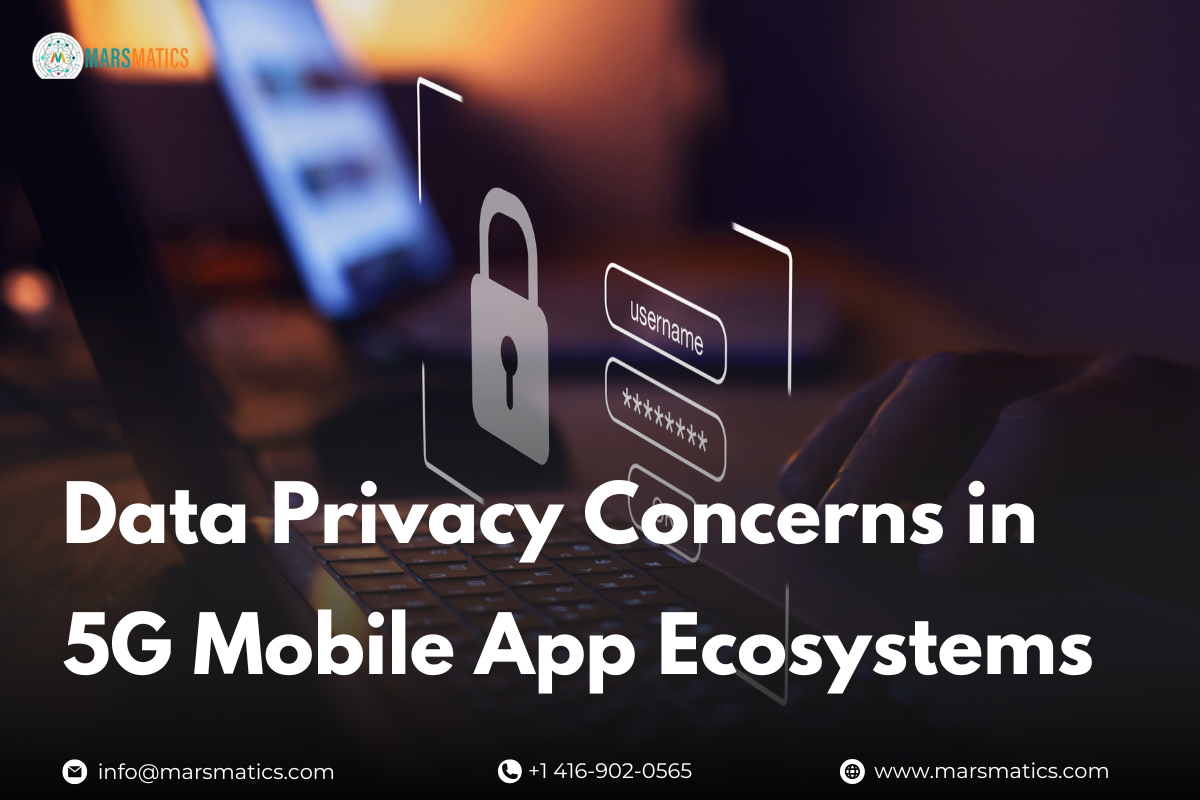Data Privacy Concerns in 5G Mobile App Ecosystems
As 5G technology continues to roll out across the globe, it brings with it a wave of opportunities—and significant responsibilities. From ultra-fast speeds to massive device connectivity, 5G is transforming mobile applications like never before. But alongside innovation comes an increase in security vulnerabilities. One of the most pressing challenges? Data Privacy Concerns in 5G Mobile App Ecosystems. This blog explores why privacy is at greater risk in the 5G era, what threats are emerging, and how developers and businesses can proactively protect user data.
What is 5G and How It Changes Mobile App Ecosystems?
5G, the fifth generation of wireless technology, delivers faster download speeds, lower latency, and the ability to connect more devices simultaneously. This evolution is powering a new wave of mobile apps, especially in areas like:
- Real-time health monitoring
- Augmented and virtual reality (AR/VR)
- Smart home integrations
- Connected vehicles
These apps process and transmit vast amounts of personal and behavioral data in real-time, which amplifies 5G mobile app data risks and calls for stronger privacy safeguards.
Why Data Privacy Becomes More Critical with 5G?
With previous mobile networks, data mostly flowed through centralized cloud servers. But 5G shifts this model by enabling edge computing, where data is processed closer to the user’s device. This speeds up services but also means data is stored and processed across many decentralized points.
This decentralization makes it harder to monitor and control data flows, opening up more opportunities for breaches, leaks, or misuse. As a result, 5G data privacy concerns are no longer just technical issues; they are core user trust challenges.
Also Read: Security Challenges in 5G-Powered Mobile Apps
Major Data Privacy Risks in 5G-Powered Apps:
1. Real-Time Data Collection Without Explicit Consent:
Many 5G apps collect real-time data, such as location, health metrics, or usage patterns. But users are often unaware of what data is collected, who has access to it, or how long it’s retained. This raises serious privacy issues in 5G apps, especially when third-party advertisers or analytics tools are involved.
2. Weak Encryption on Edge Nodes and Devices:
In 5G environments, data may be stored temporarily on edge servers or IoT devices. Without robust encryption, these nodes become weak links in the security chain. Unauthorized access to these devices could lead to large-scale data exposure, contributing to critical 5G mobile app data risks.
3. Increased Third-Party Data Sharing:
To deliver faster services, many 5G apps integrate third-party APIs and SDKs. Unfortunately, these integrations can leak user data if not properly vetted or secured. The more complex the app ecosystem, the harder it becomes to track how and where data is shared, exacerbating 5G data privacy concerns.
4. Regulatory Challenges Across Borders:
5G enables real-time global connectivity, but privacy regulations are still mostly country-specific. For example, the GDPR in Europe and the CCPA in California differ significantly in terms of compliance. Apps operating internationally must navigate a maze of cross-border data privacy laws, increasing the risk of non-compliance and penalties.
How Developers and Businesses Can Mitigate These Risks?
1. Privacy-by-Design Principles:
Start with privacy at the core of app development. This means:
- Minimizing data collection to only what’s necessary
- Giving users control over their data preferences
- Making privacy settings easy to understand and access
Adopting 5G app privacy best practices from the ground up reduces exposure to future legal and technical issues.
2. End-to-End Encryption and Secure APIs:
Protect data during every stage of transmission. Use:
- SSL/TLS encryption for in-transit data
- Strong encryption protocols for stored data
- API gateways and token-based authentication to validate third-party access
These steps help mitigate 5G mobile app data risks and reinforce trust.
Also Read: How 5G Technology is Changing Mobile App Development?
3. Edge Security Best Practices:
Since data processing often occurs on the edge in 5G environments, securing these nodes is vital. Techniques include:
- Regular firmware updates and patching
- Isolated environments for sensitive processing
- Hardware-level security modules
Implementing these measures supports robust 5G app privacy best practices.
4. Compliance with Evolving Privacy Regulations:
Stay ahead of cross-border data privacy laws by:
- Monitoring regulatory updates in every operational region
- Conducting regular audits of data flow and storage
- Implementing geo-fencing to keep sensitive data within allowed jurisdictions
Businesses that demonstrate regulatory accountability are more likely to earn user trust in this rapidly evolving ecosystem.
Also Read: Impact of Serverless Architecture on Traditional Software Development
What the Future Holds: Balancing Innovation and Privacy?
As 5G becomes the standard and even 6G development begins, the focus must shift toward creating technologies that prioritize privacy just as much as performance. Developers, telecom providers, and governments need to collaborate on global standards for security and data protection.
Meanwhile, adopting 5G app privacy best practices, staying updated with cross-border data privacy laws, and addressing 5G data privacy concerns proactively will be essential to building trustworthy, future-ready mobile applications.
In summary, the era of 5G offers immense potential, but also introduces complex data privacy concerns in 5G mobile app ecosystems. By taking a proactive, security-first approach, businesses can protect user data, maintain compliance, and foster digital innovation with confidence.
FAQs About Data Privacy in 5G Mobile Ecosystems
Q1: What makes 5G apps more vulnerable to data privacy issues?
A: The massive device connectivity, real-time data flow, and decentralized architecture increase potential entry points and tracking difficulty.
Q2: Are existing privacy laws enough to protect users in a 5G environment?
A: Not entirely. Laws like GDPR and CCPA are a good start, but they weren’t designed with the scale and speed of 5G in mind.
Q3: How can users protect their data while using 5G apps?
A: Use apps with transparent privacy policies, enable encryption, avoid public Wi-Fi, and disable unnecessary permissions.
Q4: What industries are most at risk due to 5G-related data privacy concerns?
A: Healthcare, finance, smart cities, and eCommerce apps are particularly vulnerable due to high volumes of sensitive data.








